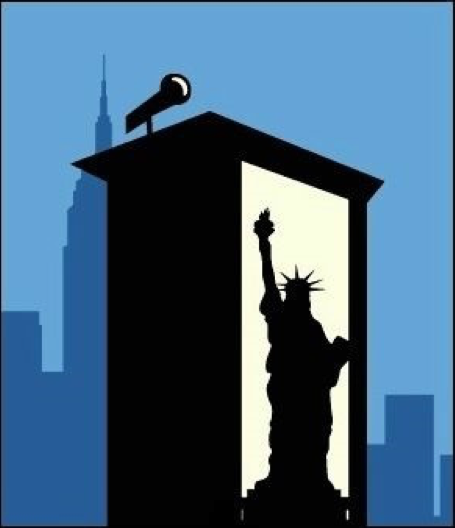Stronger critical literacy skills
The NYCUDL (New York City Urban Debate League) is part of a national network that teaches young people (86% students of color and 76% low-income students) to “think, communicate, collaborate, and love learning…. What I find so powerful about urban debate is the way it transforms a practice that can easily remain exclusive and exclusionary (because of its complex set of official rules and unofficial norms, as well as the financial costs of camps, travel, and materials) into an inclusive space in which students of color can experiment with forms of creative expression that push the boundaries of civic dialogue. While policy debate has a strict structure of timed speeches and speaking roles, urban debaters have innovated with how those minutes are used to address the resolution at hand. If you have not heard the recent Radiolab podcast exploring the ways that urban debaters are using hip hop and performative politics to upend traditional assumptions about who can participate in debate and how debate looks and sounds, drop everything and listen to it now. It offers an incisive analysis about how urban debate is not simply about offering students of color access to an activity that can improve their academic skills, but also about students of color transforming this foundational civic activity by introducing new forms of expression.I am now working with the New York City Department of Education’s Middle School Quality Initiative (MSQI) to study the impacts of expanding debate from the high school level into the city’s middle schools. Students in MSQI schools experience debate in the classroom through the Word Generation literacy curriculum and now have the opportunity to participate in extracurricular debate tournaments, where they debate resolutions about issues ranging from military recruiters in schools to the value of rap music.While our study continues, we have already found that debate encourages students to analyze complex texts, take multiple perspectives on controversial issues, and use their voices to advocate for social justice. We see debate as an activity that has the potential to bridge classroom and community spaces to support the development of young people’s academic and critical literacies.”
– Nicole Mirra“The Power of Debate as a Form of Civic Communication,” Digital Media and Learning, http://dmlcentral…, Nicole Mirra, May 19th 2016
